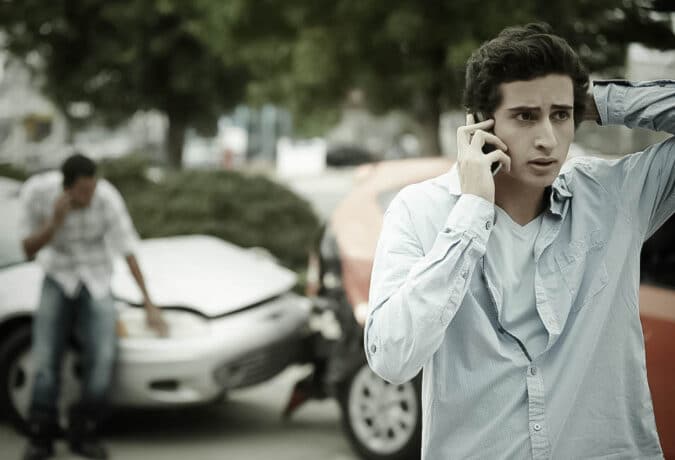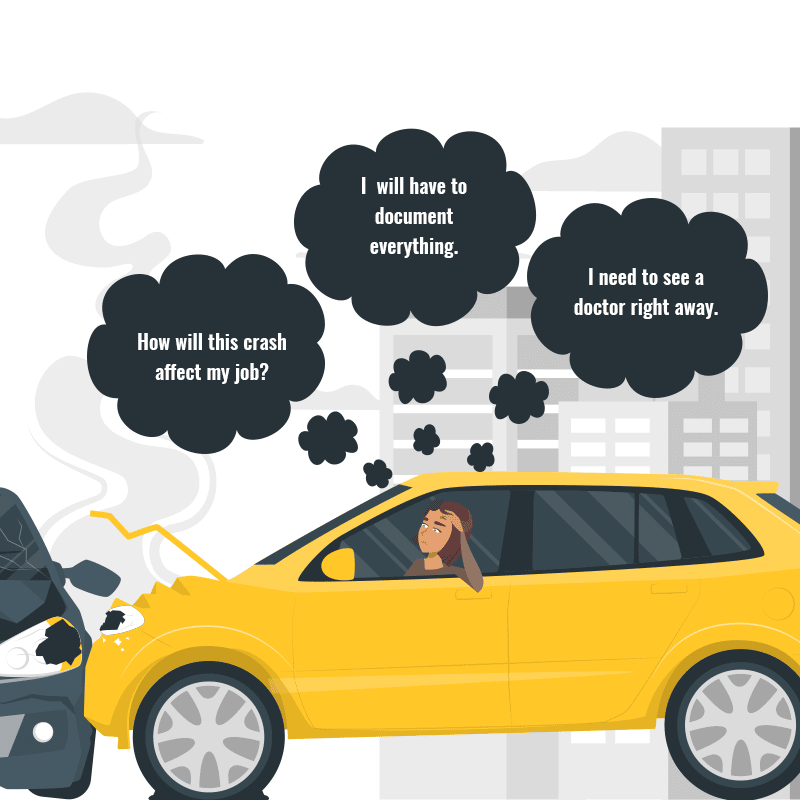
Exceptions exist that allow people to take legal action after settling auto accident injury claims. A comparative fault state with regard to motor vehicle crash liability, Nevada allows those injured to seek compensation from each involved motorist. As a general rule, reaching settlements for car collision injury claims typically relieves people of the right to take further legal action for losses resulting from the wreck. However, in some instances, accident injury victims have the ability to sue someone after a car accident is settled.
Those injured in motor vehicle crashes often suffer economic losses such as medical bills and lost wages. They also commonly experience noneconomic losses, including physical and emotional pain and suffering. To recover compensation for these and other damages, injury victims may pursue a settlement with the responsible drivers’ insurance companies. Alternatively, they may choose instead to file a civil lawsuit on their own or with the assistance of an auto accident lawyer.
When Can You File a Lawsuit After Agreeing to a Settlement?



Although not common, certain circumstances allow a person to sue someone after a car accident is settled. The court may release people from agreements not to pursue further legal action after a motor vehicle crash settlement in bad faith cases. Bad faith cases include claims in which insurance agents enter negotiations with malintent, as well as issues such as fraud or coercion. For instance, an unscrupulous insurance agent suggests that a victim must take the first nominal amount offered or he or she will receive nothing for the associated collision damages. As a result, the person injured may feel he or she has no other choice but to take an unfair compensation offer. Similarly, giving victims inaccurate information about their options, including how to file a claim after a car accident, may constitute fraud and warrant additional action in auto wreck cases.
Sometimes more than one person bears fault for motor vehicle collisions resulting in injuries, and those injured may generally recover contributory damages from each at-fault party. Therefore, while a person settles with one defendant, he or she may still choose to take legal action against other defendants with whom they could not reach settlement agreements. For instance, settling with an at-fault driver would not prevent the person injured from also seeking compensation from a vehicle manufacturer if a defect contributed to causing the crash.
When You Cannot File a Lawsuit After Agreeing to a Settlement
After reaching an auto wreck injury settlement, most people cannot take additional action. In exchange for the compensation provided by insurance companies or other defendants, those injured typically must sign release forms. Signing such a form typically relieves victims of their right to further pursue compensation against the insurance company or defendant for the same collision. Even in cases when injury victims subsequently refuse to accept or collect the compensation, the release contract still binds them to their promise not to pursue further legal action for the accident against that specific claim.
Release contracts also still apply in cases when people suffer worse injuries than originally believed, amass added damages, or learn later that their claims had more value than the compensation they received. For example, an injured passenger negotiates with the insurance company themselves. Later, the passenger learns how a car accident lawyer can maximize the settlement and wants to recover more for their crash-associated losses. If the injury victim already agreed to and signed a release form for the settlement, he or she generally will no longer have the ability to file a lawsuit for the accident.
What to Do Before Agreeing to a Car Accident Settlement
After auto collisions, people should take several important steps, including getting checked out by a medical professional, documenting their injury-associated expenses and costs, and evaluating the full impact of their injuries before accepting a settlement offer. Doing so may help them protect themselves and their interests, since once they accept a settlement offer, they cannot change the compensation amount. The insurance company, even when not acting in bad faith, will typically seek to pay out as little as possible, making it necessary for people to know the full worth of their claims before agreeing to settlement offers.
Seeking Medical Attention
Even if they think them minor, people should have auto accident injuries evaluated by medical professionals. Going to the doctor or the hospital not only provides a diagnosis. It also helps establish a connection between the crash and the victim’s injuries, which often proves necessary in cases that involve legal action. Health care providers may aid in projecting people’s current and future care needs, which will help in calculating the financial costs associated with treating their injuries.
Gathering Documentation
Having documentation to support their claims may provide leverage in settlement negotiations, or valuable evidence should a lawsuit prove necessary. In addition to saving medical bills, statements, and documentation, people injured in motor vehicle wrecks may benefit from keeping other documentation. For example, they may take photographs of their injuries or the accident scene, ask family or friends for letters about the effects of their injuries, or collect work records that show their earning history and trajectory before and after the crash.
Considering the Full Occupational Effects
After car wrecks, people must carefully evaluate the effects of their injuries on their jobs. Some accident injuries keep people out of work temporarily, while others render them permanently unable to return to their jobs. In negotiating and considering settlement offers, those injured in auto collisions often benefit from having as clear a picture as possible of the extent to which their injuries have affected their ability to work. Having such a picture will aid in assessing the future earning capacity their injuries have cost them, in addition to the calculable wages they lost while off work recovering or on restricted status.
Recovering compensation will not relieve the emotional or physical toll that suffering auto accident injuries frequently has on people and their families. However, receiving damages sometimes offers much-needed financial support while those injured focus on what matters the most – recovering and moving forward.









